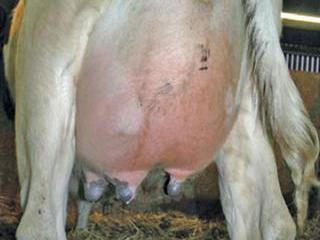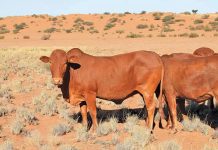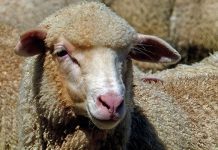
Mastitis is inflammation of the udder, and can strike at any time. It affects milk production and, if neglected, can kill your cows.
Symptoms
- The udder is swollen, hard, hot and painful.
- There is necrosis (dying-off) of udder tissue.
- The cow is feverish, does not eat and produces less milk.
- The appearance of the milk changes. It could be watery or contain mucus, pus or even blood.
What causes it?
Mastitis is caused by bacteria, but several other factors can trigger the disease: rainy, damp conditions, dung in the bedding, dirty equipment or dirty water. The disease is also contagious – it can spread from one cow to another.
How to treat it?
- Speak to your vet – he may give you an antibiotic for the cow. Follow the directions carefully.
- Massage the udders gently if they are swollen and hot.
- Milk the cow two or three times a day and throw the milk away, either in a hole in the ground or in the sewage system.
How to control it
- Most importantly, clean the milking area as well as all your equipment before you start milking. Also, wash your hands and make sure they have no sores on them.
- Before milking, wash the cow’s teats under running water and dry them with a clean, dry, disposable paper towel.
- Use a test beaker at every milking to check whether the milk contains mucus, pus or blood.
- Dip the teats in a suitable ointment – your vet can advise you – after every milking.
- Cut off any long hair on the udder.
Management tips
- Separate infected cows from the rest of the herd and milk them last.
- Keep an accurate record of all your cows. Identify problem cows, and make a note of those with mastitis. Record the treatment given and how the animals responded to it.
- Don’t forget to speak to your vet – his advice could save your cow’s life!
Sources: Mastitis infopak compiled by the department of agriculture in co-operation with the Directorate Animal Health; Mastitis, by RF Horner and JL Randles, published by the KwaZulu-Natal department of agriculture; the Merck Veterinary Manual.












